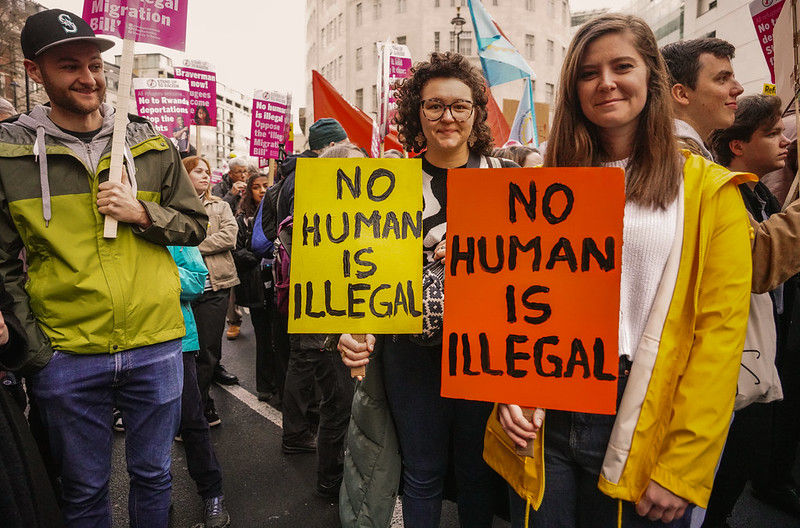Glaring faults – the argument against the Illegal Migration Bill
- Rania Sivaraj
- Sep 25, 2023
- 3 min read
BY RANIA SIVARAJ

Migration is a contested issue. It is complex, multifarious, and generally a topic that people are either uncomfortable or all too ready to discuss. Because of this, it should be acknowledged how difficult it is to tackle, applying legislation that keeps it under control and protects those crossing the Channel. A rise in the total number of people attempting to cross the Channel has been challenging, with numbers surpassing 45,000 in 2022. Inevitably this has led the government to implement new measures aimed at curbing boat crossings.
But, at the same time, it is easy to acknowledge that the Illegal Migration Bill is flawed – logistically and morally. The Conservatives, who have been publicly intent on reducing small boat crossings across the Channel, have made the bill a central point of their domestic policy in the past year. It gives the Home Secretary – Suella Braverman – a duty to detain and remove those arriving in the UK illegally, with migrants either being sent to Rwanda or another ‘safe’ third country. This clause, indicated as the main point of the bill, is unfounded, expensive, and unlawful.
No asylum seeker has been sent to Rwanda yet – the first flight, scheduled in June 2022, was cancelled due to legal challenges which are ongoing between the government and the courts. Indeed, in June the Court of Appeal overturned an earlier ruling made by the High Court that the Rwanda plan was lawful, highlighting that the nation is not a safe country because of ‘deficiencies’ in its asylum system, ones that allow refugees to be sent back to their home countries where they could face persecution. Suella Braverman has insisted that Rwanda is safe for immigrants and that the plan complies with international law, yet the main principle of the 1951 Refugee Convention is that refugees should not be returned to countries where they face threats to life or freedom, making her claims untrue.
There is concrete evidence that Rwanda is not safe for refugees. During an interview, Braverman stated that the 2018 shooting of 12 Congolese migrants in Rwanda was in the past, saying the government is 'looking at 2023 and beyond’. However, the government is not looking at the basic needs of individual people, with the deportation approach being inflicted upon all migrants regardless of their situation; despite the option to delay the departure of under-18s, pregnant women, and a small number of other vulnerable groups being presented in the bill, Rwanda is still the end goal.
The bill undermines victims of modern slavery and human trafficking, as Rwanda has been named a ‘destination country’ for women and children subjected to trafficking and commercial sexual exploitation. This is ironic given the government stated anyone identified as a potential victim of the latter would be sent home or to a 'safe country away from those who trafficked them’.
These issues – no doubt a product of a lack of research and complete ignorance – are obvious, so much so that the UN released a critical statement claiming the bill would have ‘profound consequences for people in need of international protection’. The appeal to the Supreme Court by Rishi Sunak (an attempt to gain permission)
emphasises how this bill needs greater evaluation, its backlash and controversy a sign of how ineffective and unempathetic it is. Even the economic impact of the bill is bleak – taxpayers' money is often used as the justification for the Rwanda plan, as asylum seekers are living in hotels across the UK. Despite this, an impact assessment by the Home Office estimated that removing one individual to Rwanda would cost more than housing them in the UK once flights and payments to the Rwandan government are factored in. A difference of £63,000 has been estimated – so why relocate to Rwanda at all, where vulnerable persons may be persecuted in similar ways to the places they fled from?
The answer is simple. The Illegal Migration Bill is not backed up legally or intellectually. It is an effort to curb migration by displacing vulnerable persons and making them another country’s issue, a product of racial tensions within the UK that have stoked the flames of Conservative rhetoric in the last decade. Migration is complex, we know this – and needs to be kept under control. But this bill and the amount of resistance towards it is a palpable sign that the government needs to start doing things differently in its approach to migration and vulnerable people altogether.
Image: Flickr/ No human is illegal
Comments